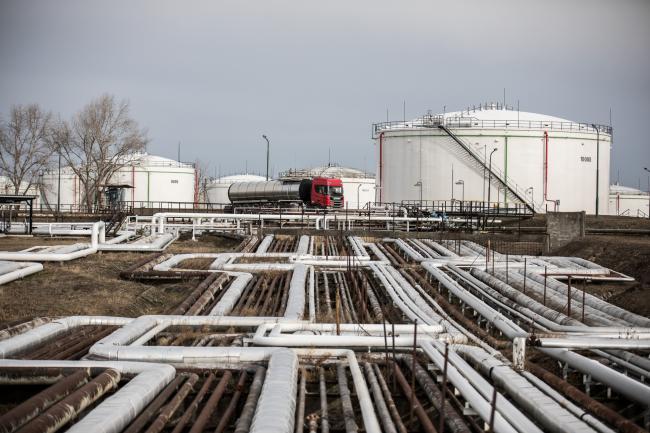(Bloomberg) -- Oil headed for its longest weekly winning streak in almost four years on the prospect of a supply crunch, although the gains are moderating as investors wait for OPEC’s response to tighter U.S. sanctions on Iran.
Futures in New York are up 1.3 percent so far this week, heading for an eighth weekly advance. While the White House’s announcement that it will end waivers allowing some buyers to import Iranian oil spurred a 3.6 percent jump over Monday and Tuesday, over half of that gain has since been lost. Brent crude spiked briefly above $75 a barrel Thursday as Russian flows were halted across Europe after customers complained of impurities.
Oil’s 43 percent rally this year has been driven by the Organization of Petroleum Exporting Countries and its allies cutting output and disruptions from Venezuela to Libya. While Washington’s tougher stance on Iran is further tightening supplies, it’s still unclear to what extent Saudi Arabia and other nations will pump more to make up for lost barrels. The kingdom said this week it sees no need to take immediate action.
“The tables have turned: Just six months ago, we were looking at a supply glut but now the market is fretting over a lack of supply,” said Howie Lee, an economist at Oversea-Chinese Banking Corp. in Singapore. “If Saudi does not fill the production void adequately, prices may very well be headed higher.”
West Texas Intermediate for June delivery fell 38 cents to $64.83 a barrel on the New York Mercantile Exchange at 11:27 a.m. in Singapore. The contract closed down 1 percent on Thursday and is up 84 cents this week. The last time WTI rallied for more than eight consecutive weeks was in May 2015.
Brent for June settlement was down 21 cents, or 0.3 percent, to $74.14 a barrel on the London-based ICE (NYSE:ICE) Futures Europe exchange. The contract rose to as high as $75.60 a barrel on Thursday before closing 0.3 percent lower. It’s up 3 percent for the week, set for a fifth weekly gain. The global benchmark crude was at a premium of $9.30 to WTI.
The U.S. crackdown on OPEC’s fourth-largest producer will probably cut Iranian shipments by half to 500,000 to 650,000 barrels a day, Citigroup Inc (NYSE:C). estimates. While the U.S. won’t close the door to “incidental transactions” of Iranian supplies, the White House has made it clear that current exceptions given to eight nations will not be re-issued after the May 2 expiry.
Brent surpassed $75 for the first time since October on Thursday after Poland, which receives oil through a northern section of the giant Druzhba pipeline, stopped Russian imports, saying shipments have become contaminated by organic chlorides. As much as 1.5 million barrels a day are estimated to be at risk from the disruption, with oil traders scrambling to find replacement cargoes for buyers across Europe.
